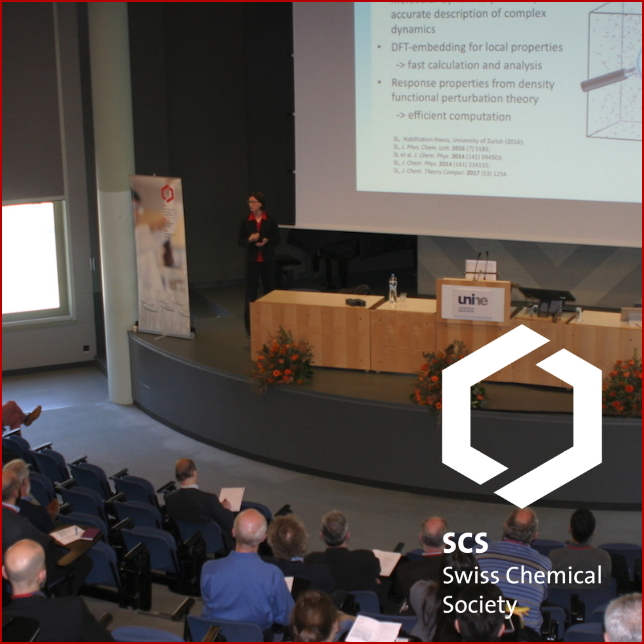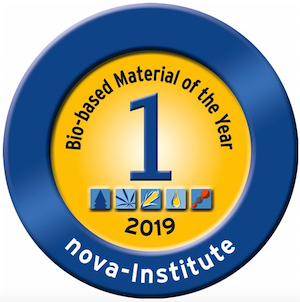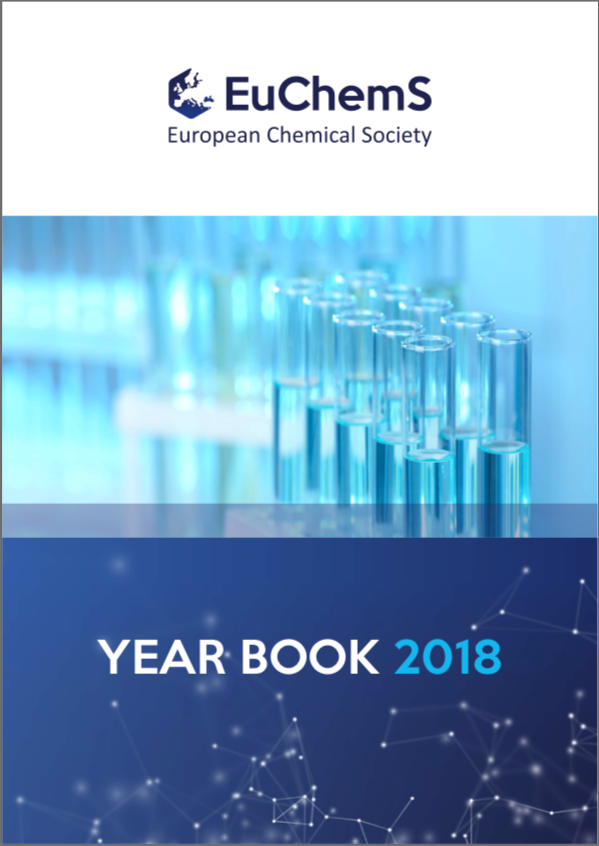Brussels News Update, February 2019
Hello and welcome to the February edition of Brussels News Updates, the EuChemS newsletter keeping you up-to-date with the latest developments affecting the chemical sciences, as well as our news, activities and upcoming events!
With the International Year of the Periodic Table now in full swing, we look back on what has been an incredibly busy but exciting early 2019, with events taking place in Brussels to Murcia, without forgetting the fantastic opening ceremony in Paris. But aside from celebrations, important policy developments are taking place, not least with our issued statement on ‘Plan S’ for open access in scientific publishing, EU-UK relations and their impact on science, and more besides.
You can read the full newsletter online here.
Content
European Highlights
- EuChemS issues statement on the implementation guidelines of Plan S and attends latest OSPP meeting
- Year Book 2018 published
- The #IYPT2019, the Periodic Table and EuChemS
- ‘Elemental Escapades!’: the new EuChemS video game
- ECHA submits proposal for ban on microplastics
- When international collaboration creates Chemistry
- Science week in the European Parliament
- Women and the Periodic Table
- Join us for our upcoming event!
- Members of the European Parliament warn of ‘snail pace on pesticide innovation’
Consultations & Roadmap
- Call for feedback: High and low Indirect Land-Use Change (ILUC) – risks biofuels, bioliquids and biomass fuels
- Public consultation: Evaluation of the feed additives Regulation
Calls for Funding and Awards
- Horizon 2020: Converting Sunlight to storable chemical energy
- Horizon 2020: Safety Research and Innovation for advanced nuclear systems
Events
David Spichiger, SCS
16.02.2019
Invitation to the SCS General Assembly 2019
 The Board of Directors invites all members of the Swiss Chemical Society and the delegates of its associated societies to join the 29th General Assembly:
The Board of Directors invites all members of the Swiss Chemical Society and the delegates of its associated societies to join the 29th General Assembly:
29th General Assembly of the Swiss Chemical Society
April 5, 2019, 13.00–13.30h, Empa Akademie, Dübendorf
Provisional Agenda
- Welcome and approval of the agenda
- Election of the vote counters
- Minutes of the 28th General Assembly from April 6, 2018 in Neucâtel (published in CHIMIA 5/2018, A348)
- Annual report 2018 (published on the SCS website and in CHIMIA 1-2/2019)
- Financial statement 2018 incl. audit report
- Discharge the Board
- Elections
- News and strategic projects
- Outlook 2019/2020
- Varia
Motions to the assembly can be submitted until March 22, 2019 to .
A summary of the financial statement 2018 will be published on the website after the formal audit (accessible with member login only)
Swiss Chemical Society (SCS)
Dr. Alain De Mesmaeker, President
David Spichiger, Executive Director
David Spichiger, SCS
13.02.2019
Innovation award “Bio-based Material of the Year 2019: call for applictions
 The established innovation award “Bio-based Material of the Year” award will once again be granted to novel, innovative and trendsetting bio-based materials and products. The target of the award is to bring new developments, launched in 2018 or to be launched in 2019, into the spotlight. The award is given by nova-Institute and sponsored by InfraServ Knapsack.
The established innovation award “Bio-based Material of the Year” award will once again be granted to novel, innovative and trendsetting bio-based materials and products. The target of the award is to bring new developments, launched in 2018 or to be launched in 2019, into the spotlight. The award is given by nova-Institute and sponsored by InfraServ Knapsack.
Deadline for submission: end of February 2019.
The innovation award will be carried out within the framework of the “12th International Conference on Bio-based Materials” in Cologne, 15-16 May 2019 (www.bio-based-conference.com). The Bio-based Material Conference is a well-established meeting point for companies working in the field of bio-based chemicals and materials.
Among the applicants, six candidates will be nominated for the award by an independent expert jury, and will then get the opportunity to hold a ten-minute presentation at the conference. The participants of the conference will elect the final winner of the innovation award “Bio-based Material of the Year 2019”.
Applying to the award is free of charge and each nominated “Top 6” candidate will receive one free 2-day ticket to attend the conference. This is a unique opportunity to promote new bio-based materials and products, that have been or are going to be launched to the market in 2018 or 2019. nova-Institute will issue a worldwide press release and use all communication channels to publish the award-winning material or product.
Click the link to find out more about the innovation award and complete the online application form: www.bio-based-conference.com/award-application/
Last year, the granulate PLA reinforced with a degradable glass fibre from the Finnish company Arctic Biomaterials Oy (www.abmcomposite.com) won the “Bio-based Material of the Year 2018” award. Tomi Kangas, Sales and Marketing says: “The bio-based material of the year award has definitely been of great value to our company. In several cases where customers and co-operation partners have contacted us they have referred to this award as the trigger to look for information about our company and products. We have also been contacted from areas outside our normal reach due to the wide press coverage the award exposed us to.”
In the past, the companies like Aimplas (ES), Arctic Biomaterials (FI), Bio-Lutions (DE), Cardolite Corporation (US/BE), Covestro (DE), Fischerwerke (DE), Ecovative Design (US), Evonik (DE), FKuR (DE), Hib Trim Part Solutions (DE/JP), NewLight Technologies (US), Omodo (DE), Orineo (BE), Paptic (FI), Phytowelt (DE), Qmilk (DE) and Staedtler Mars (DE) have already won the Innovation Award. We received a great feedback from these companies and they reported a significant boost for their bio-based innovation after the conference. Find more details about the winners from previous years at: www.bio-based-conference.com/wp-content/uploads/2018/10/18-10-22-BMC-2019-Innovation-Award-Winners.pdf
More than 200 participants, mainly from the industry, are expected at the conference. Find the preliminary program and additional workshops on the conference website. www.bio-based-conference.com
nova-Institute is a private and independent research institute, founded in 1994; nova offers research and consultancy with a focus on bio-based and CO2-based economy in the fields of food and feedstock, techno-economic evaluation, markets, sustainability, dissemination, B2B communication and policy. Every year, nova organises several large conferences on these topics; nova-Institute has 30 employees and an annual turnover of more than 3 million €.
If you don't want to get further press releases from nova-Institute, please contact
David Spichiger, SCS
07.02.2019
BASEL LIFE: 9–12 September 2019
BASEL LIFE: Showcasing Europe’s Excellence in Life Sciences
BASEL LIFE is Europe’s leading congress in the life sciences, showcasing cutting-edge science and technology. It brings together preeminent researchers in the field, and offers talented young scientists the possibility to present themselves. Basel is the heart of European’s Life Sciences landscape.
|
Science |
|
|
Bioinformatics |
|
|
Technology, Application & Business |
|
|
Exhibition |
|
|
European Job Fair |
Contact
BASEL LIFE 2018
Congrex Switzerland Ltd.
Peter Merian-Strasse 80
4002 Basel, Switzerland
+41 61 686 77 77
+41 61 686 77 88
Website: https://www.basellife.org/2019
David Spichiger, SCS
05.02.2019
EuChemS 2018 Year Book
 It is with great pleasure that we inform you that the EuChemS 2018 Year Book has been published. We invite you to read it for a summary of the many activities EuChemS and its community have organised or taken part in over the previous year.
It is with great pleasure that we inform you that the EuChemS 2018 Year Book has been published. We invite you to read it for a summary of the many activities EuChemS and its community have organised or taken part in over the previous year.
The Year Book is available online
Overview of the content:
- editorial by EuChemS President Pilar Goya
- articles on the General Assembly
- report on the ECC7
- EuChemS policy initiatives
- communication activities
- past and upcoming events
- EuChemS awards
- information about professional networks
David Spichiger, SCS
04.02.2019
Page 69 of 299


